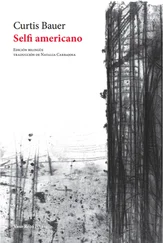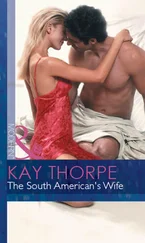Curtis Sittenfeld - American Wife
Здесь есть возможность читать онлайн «Curtis Sittenfeld - American Wife» весь текст электронной книги совершенно бесплатно (целиком полную версию без сокращений). В некоторых случаях можно слушать аудио, скачать через торрент в формате fb2 и присутствует краткое содержание. Жанр: Старинная литература, на английском языке. Описание произведения, (предисловие) а так же отзывы посетителей доступны на портале библиотеки ЛибКат.
- Название:American Wife
- Автор:
- Жанр:
- Год:неизвестен
- ISBN:нет данных
- Рейтинг книги:4 / 5. Голосов: 1
-
Избранное:Добавить в избранное
- Отзывы:
-
Ваша оценка:
- 80
- 1
- 2
- 3
- 4
- 5
American Wife: краткое содержание, описание и аннотация
Предлагаем к чтению аннотацию, описание, краткое содержание или предисловие (зависит от того, что написал сам автор книги «American Wife»). Если вы не нашли необходимую информацию о книге — напишите в комментариях, мы постараемся отыскать её.
American Wife — читать онлайн бесплатно полную книгу (весь текст) целиком
Ниже представлен текст книги, разбитый по страницам. Система сохранения места последней прочитанной страницы, позволяет с удобством читать онлайн бесплатно книгу «American Wife», без необходимости каждый раз заново искать на чём Вы остановились. Поставьте закладку, и сможете в любой момент перейти на страницу, на которой закончили чтение.
Интервал:
Закладка:
I feel a great urge to be in the same physical place he is, to set my hand on his cheek, to embrace him—to show him that though I’ve done something uncharacteristic, I’m still his loyal wife.
“I’m walking toward a TV right now,” he says, and then, to someone else, he says, “Yeah, while she was just talking to him.” To me, he says, “Yep, it’s on every station. Way to go, baby. You want to torpedo my immigration bill while you’re at it? Sabotage Social Security reform?”
It’s already on every station? Edgar Franklin climbed from my car minutes ago. But the newscasters must have figured it out while he was still in the limousine, they must be reporting live in their urgently speculative way.
“I’ll be home in five minutes,” I say. “Will you wait for me to get there before you become wound up?”
“See, I always forget this about you,” he says, and even now, long after we first lost our privacy, I can’t help wondering who’s overhearing him. “Every decade, you like to pin me to the ground, pull open my mouth, and take a shit right into it.”
I ONCE THOUGHT, when I was thirty-one and Charlie was running for Congress, that with practice I might learn to hold a novel in my purse and read it during his speeches, but I was wrong; reporters and audience members often glance at a candidate’s wife while he speaks, gauging her reaction. Also around this time, which was when Charlie and I were falling in love, I thought that I could support him not as a politician but as a person, and I told him this, and he thought it, too. “I can assure you I’ll never tell anyone if I disagree with you,” I said to him. “That’s no one’s business but ours.”
____
THE GALA IN my honor, attended by more than three hundred guests, is pleasant and crowded and a bit over-the-top. Charlie and I sit side by side in the front row, and after the third-graders sing “God Bless America” and a tiny twelve-year-old boy in a wheelchair is pushed onstage by his mother to lead us all in the Pledge of Allegiance, there are speeches by a principal at a public high school in Anacostia, a fifth-grader at a school in Bethesda, Maryland, and a Democratic senator known for his sponsorship of education-related bills (though he and I have gotten along well over the years, it’s no secret he despises Charlie; however, he’s hoping for support for his housing-voucher program). There is then a baton-twirling routine performed to R. Kelly’s “I Believe I Can Fly” by a trio of nine-year-olds in leotards, a scene from the play The Miracle Worker in which two respected Broadway actresses play the parts of Helen Keller and Annie Sullivan, and a reading of the Langston Hughes poem “Theme for English B” by a high school senior, an African-American girl who is probably fifty pounds overweight, quite pretty, and in possession of undeniable stage presence.
At this point, three teachers receive awards: chrome apples affixed to wooden tablets, each presented by the student who nominated the teacher. The evening culminates with the reappearance onstage of all the earlier performers, two of whom unfurl a banner that has to be forty feet long and says THANK YOU FOR BEING OUR ADVOCATE MRS. BLACKWELL. During the teacher awards, I slipped backstage, and as planned, I walk out from the wings, smiling and waving. At the podium, two ninth-graders present me with my own chrome apple that’s a foot in diameter (if my apple were life-size, as the teachers’ apples are, it wouldn’t provide the requisite photo op, and the flashbulbs are indeed blinding in this moment). I don’t give a real speech but simply say, “Thank you very much, and thank you all for coming tonight. This has been an extraordinary evening, and I’m honored to be in the presence of so much talent. I hope each one of you will remember that wherever you want to go in life, education is the ticket. And now, in light of the fact that it’s a school night, I recommend that you all go home, make sure your homework is finished, and get a good night’s sleep.” (Not a speech, but still—even these aren’t words I wrote.) While normally, I’d be embarrassed at having such a fuss made over me, after all the drama of today, these proceedings are a giddy distraction. Onstage, I pose for photos with the students and teachers; several students not waiting in line have formed a circle around one of the “God Bless America” third-graders, who is vigorously break-dancing. Charlie is gone, I note. We have acted our parts tonight, sitting next to each other with pleasant expressions, Charlie smiling gamely whenever someone onstage said something kind about me, but he gave me no nonmandatory attention, no whisper or hand squeeze or knee pat.
After I returned to the White House from my conversation with Edgar Franklin, there wasn’t time for me to find Charlie—as he had predicted, there wasn’t even time for me to change clothes, but I did hurry to the residence to use my own bathroom and saw Ella. We hugged, and I said, “We should head down there now,” and she said, “Aren’t you going to refresh your makeup?”
“Honey, we’re running late.”
She smirked. “You think they’ll start without you?” Although Mirel, a lovely young woman who acts as my makeup artist, and Kim, who does my hair, were waiting in the beauty salon (a room installed by Pat Nixon), it was Ella who, using Mirel’s supplies, dabbed gloss onto my lips, rubbed the brush over my cheeks, said, “Look up,” and ran the mascara wand through my eyelashes. “Now look down.” I obeyed, and she said, “Now blink.” Then she said, “Mom, I’m glad you talked to the Franklin dude, but if the troops were withdrawn right away, there’d be a domino effect of lawlessness across the Middle East.”
Her tone was reminiscent of when she was a teenager, explaining to me something she thought I ought to already know—diplomatic enough not to offend me but confident that logic was on her side. ( Obviously she should be able to stay out until two in the morning because she was extremely responsible, because none of her classmates had a midnight curfew, and because it wasn’t like she drank.) In a strange way, I was caught off guard and touched by Ella’s directness, her willingness to talk about the war itself rather than about how to fix my supposed slip of the tongue. This, I knew already, would be the approach of everyone else. Just in the time it had taken Jessica and me to get back to the White House, Jessica’s two phones had rung six times (and those were only the rings I heard—there were probably many more beeps for calls interrupting the calls she was in the middle of), and apparently, Hank had spoken to several reporters. I’m not sure if he’d have skipped the gala anyway, but this was what he did, no doubt to continue setting the record straight. When Jessica, Ella, and I met Charlie in the Family Dining Room, Debbie Bell and Hank were both with him, perhaps to serve as a buffer between Charlie and me, perhaps at Charlie’s request, and so were Charlie’s personal aide, Michael, and my personal aide, Ashley, and Charlie didn’t kiss me hello but instead embraced Ella and more or less ignored me; I also could tell that Debbie was fuming. The eight of us walked together through Cross Hall, and just before we entered the East Room, Hank peeled off, and Charlie took my hand and forced a grin onto his face. Subtext: Nothing is wrong, and no one at the White House is concerned about the first lady going off-message.
When I’ve shaken hands and been photographed with everyone onstage who’s lined up, Ella, Jessica, and I are ushered out by Cal—Ashley squirts Purell for me—and we head toward the residence without speaking to the few dozen journalists in attendance at the gala; they are kept at bay by the press secretaries. “Here’s Hank’s plan,” Jessica says in a low voice as we walk to the elevator. “No interviews for several weeks, and you don’t take questions from the media at public events. Then we see where things stand and ease back in.”
Читать дальшеИнтервал:
Закладка:
Похожие книги на «American Wife»
Представляем Вашему вниманию похожие книги на «American Wife» списком для выбора. Мы отобрали схожую по названию и смыслу литературу в надежде предоставить читателям больше вариантов отыскать новые, интересные, ещё непрочитанные произведения.
Обсуждение, отзывы о книге «American Wife» и просто собственные мнения читателей. Оставьте ваши комментарии, напишите, что Вы думаете о произведении, его смысле или главных героях. Укажите что конкретно понравилось, а что нет, и почему Вы так считаете.












